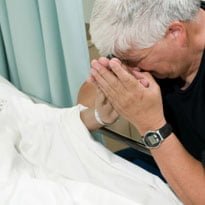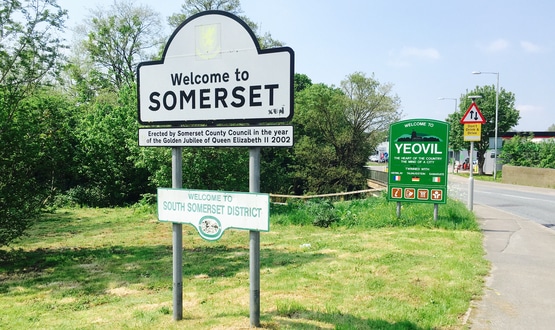Register cuts Weston deaths in hospital
- 5 April 2012

An electronic end of life register developed by a Somerset consultant has reduced the incidence of deaths in hospital to 10%.
The average rate of hospital deaths nationwide is 53%. For those on the register, the hospital death rate is 10% and the rate of people dying in their place of choice is 80%.
Weston Area Health NHS Trust palliative care consultant Julian Abel developed the electronic register in conjunction with out-of-hours system supplier Adastra.
It was piloted between April 2009 and April 2011 as part of the Department of Health’s End of Life Locality Registers programme.
Dr Abel said it was the largest, most advanced pilot and “the only one to come up with some real results at the end of it.”
The success of the pilot led to the system being fully deployed in North Somerset in March last year and it is being rolled out in 13 out of 14 primary care trusts in the South West.
“As an intervention it’s very effective,” Dr Abel said. “It’s about care co-ordination. It’s difficult to have a significant impact on end of life care unless you have some sort of electronic communication system.”
There is potential for the register to significantly reduce health costs, since the estimated rate of a hospital death is about £3,000.
Dr Abel said the best way of providing good end of life care was to talk to people about their wishes and to make sure that information available to the various people involved in their care.
He had been looking for a way of doing this for some time, when he saw the Adastra system. This ticked all his boxes by being web-based and visible from within the NHS secure network, N3, and from outside N3 with fixes.
It also fitted with what he wanted to do in terms of template design and reporting functions. Dr Abel said Advanced Health and Care, which owns Adastra, had been “incredibly helpful” in creating the register.
This is password protected, so only people involved in a patient’s end of life care have edit or view only access.
However, if a patient rings an out-of-hours service, staff can see if they have an end of life record because this is flagged on the Adastra system.
The call handler can then pass that information to a health professional going to see the patient.
When people are added to the register, the ambulance service is alerted, but it must manually change its records to flag that a person at a certain address has an end of life record.
In the hospital setting, the register depends on emergency physicians or other staff checking to see if a patient has end of life wishes recorded.
“You have to work the use of it into the workday culture,” Dr Abel explained.
In North Somerset, which has a population of 200,000, 1,000 patients have been added to the register over the past year. Dr Abel estimated the area needed about 2,000 people on the register.
“We do well with cancer-sufferers. We need to do better to get non-cancer terminal diseases, but we are getting better at it,” he said.
Advanced Health and Care said the end of life care register was now being used in the South West, Medway (North Kent) and Manchester.




